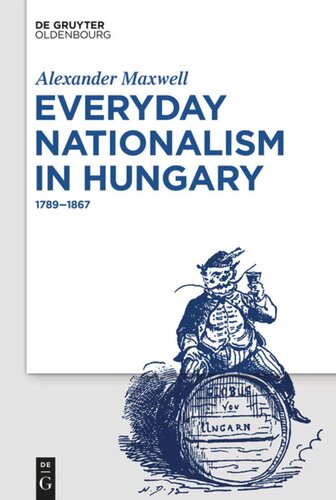

Most ebook files are in PDF format, so you can easily read them using various software such as Foxit Reader or directly on the Google Chrome browser.
Some ebook files are released by publishers in other formats such as .awz, .mobi, .epub, .fb2, etc. You may need to install specific software to read these formats on mobile/PC, such as Calibre.
Please read the tutorial at this link: https://ebookbell.com/faq
We offer FREE conversion to the popular formats you request; however, this may take some time. Therefore, right after payment, please email us, and we will try to provide the service as quickly as possible.
For some exceptional file formats or broken links (if any), please refrain from opening any disputes. Instead, email us first, and we will try to assist within a maximum of 6 hours.
EbookBell Team

4.3
98 reviewsThis book examines Hungarian nationalism through everyday practices that will strike most readers as things that seem an unlikely venue for national politics. Separate chapters examine nationalized tobacco, nationalized wine, nationalized moustaches, nationalized sexuality, and nationalized clothing. These practices had other economic, social or gendered meanings: moustaches were associated with manliness, wine with aristocracy, and so forth. The nationalization of everyday practices thus sheds light on how patriots imagined the nation’s economic, social, and gender composition.
Nineteenth-century Hungary thus serves as the case study in the politics of "everyday nationalism." The book discusses several prominent names in Hungarian history, but in unfamiliar contexts. The book also engages with theoretical debates on nationalism, discussing several key theorists. Various chapters specifically examine how historical actors imagine relationship between the nation and the state, paying particular attention Rogers Brubaker’s constructivist approach to nationalism without groups, Michael Billig’s notion of ‘banal nationalism,’ Carole Pateman’s ideas about the nation as a ‘national brotherhood’, and Tara Zahra’s notion of ‘national indifference.’